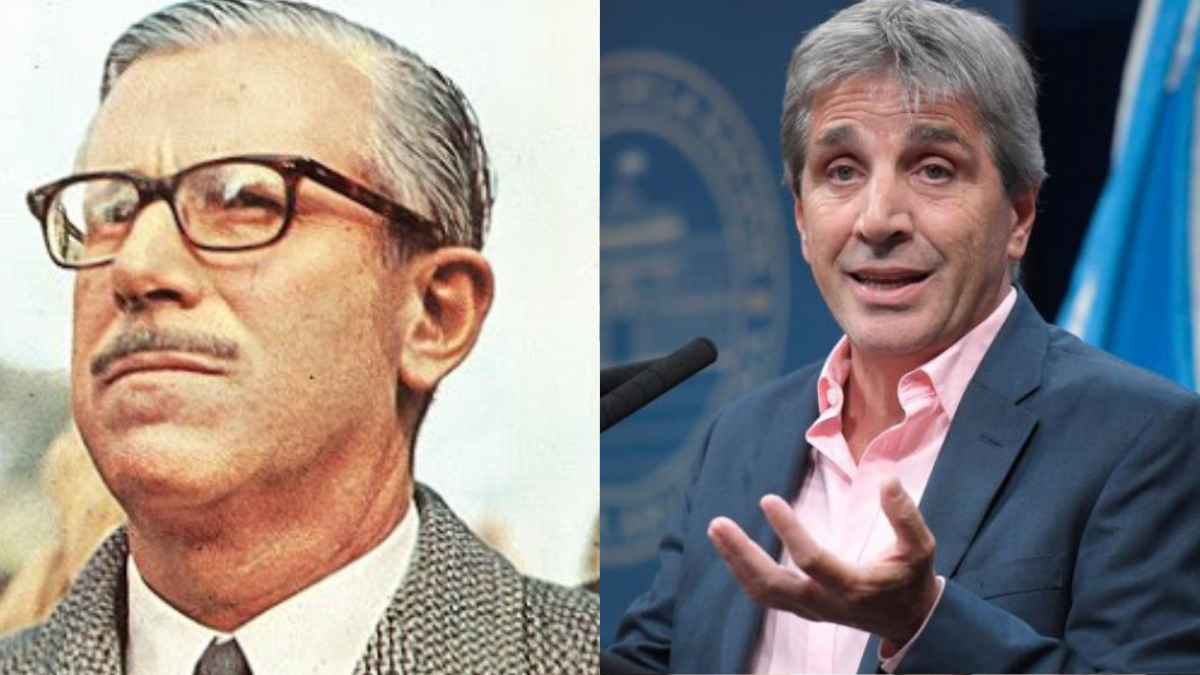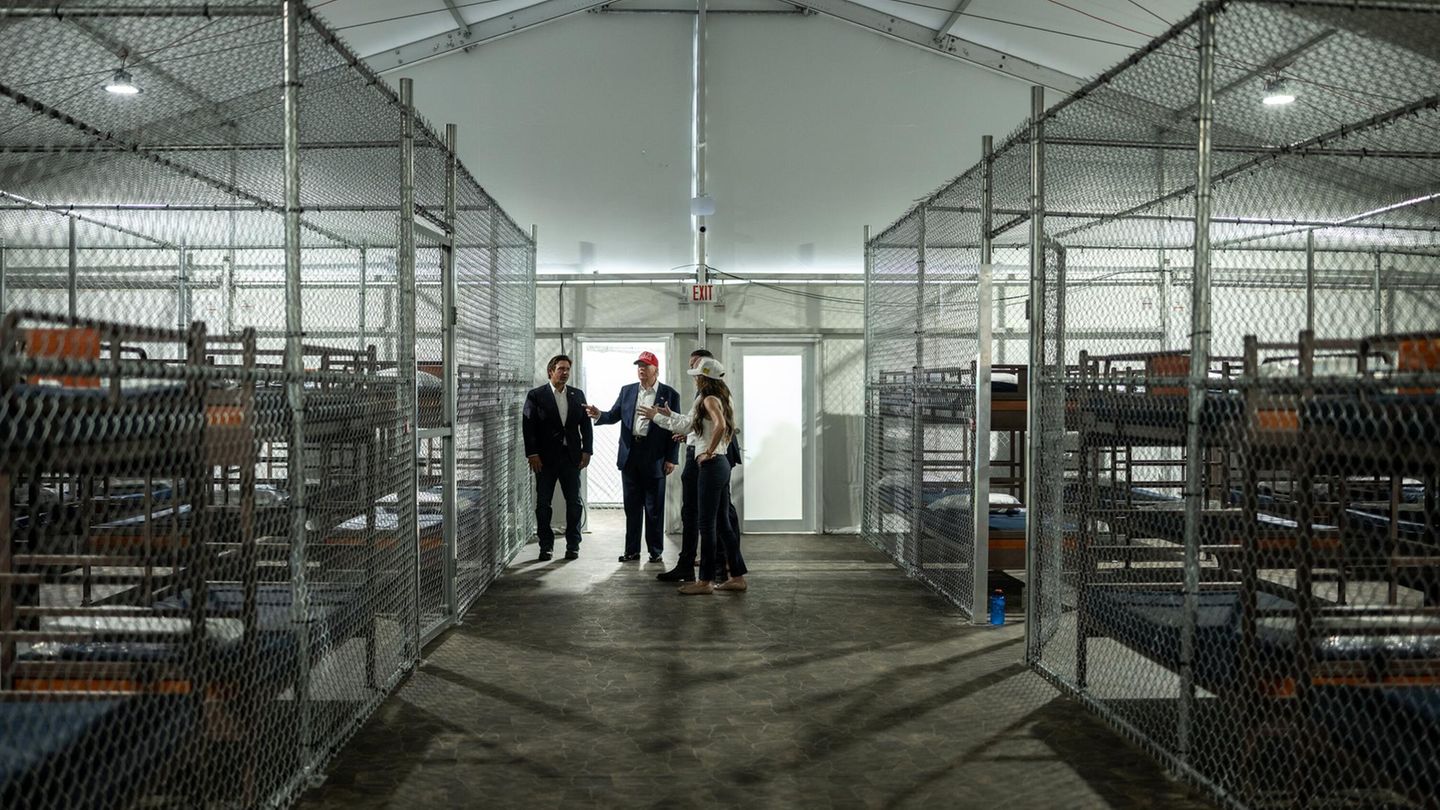What is interesting about the story? Why did Friedrich List emphasize philosophy, politics and history? Let’s go separately, The interesting thing about history is that it always repeats itself in some way.because? Because the matrix of thought to reason the present moment has not changed since 1890 or has subsisted in the chairs on the periphery. Should this matrix of thought be questioned? Yes, without a doubt, it is more than necessary because “White” also plays on the board of politics and economics.
The university trains technicians for bureaucratic management or companies and they are not neutral people but are intertwined by interests of various kinds and a matrix of thought that they use to solve various problems, in this case national dilemmas: poverty, inequality, distribution, commercial exchange, technological development, external financing, occupation and wealth.
In this case, the study reform plan for the Bachelor’s degree in Economics at the UBA does not go in the direction of questioning the “neoclassical” matrix of thought, which according to Keynes It was characterized by: Economic Darwinism, free trade and individualism. Prior to the English economist, authors such as List proposed, leaving a clear example “a tailor is not the nation, nor is the nation a tailor” and that although we all have good wishes about the future as “the universal union or the absolute freedom of international trade, which at the time is nothing more than a cosmopolitan idea, perhaps only achievable over the centuries, it is considered something susceptible to current realization. Unaware of the demands of today and the nature of the nationalityignores even the existence of the nation and, at the same time, the principle that aims to educate the nation for autonomy. Completely cosmopolitan addresses only the entire humanity, the well-being of the human race as a whole, never the nation and national well-being; abhors politics and considers experience and practice as reprehensible routines (National System of Political Economy, 1841). The State as organizer and planner of the productive sectors and the principle that aims to educate the nation for autonomy.
The Current economic policies have nothing new, they follow the matrix of economic thought that failed in 1929 and that gave way to the centrality of the State to resolve some social issues and that changed depending on whether they were issues of the central and peripheral countries. Because between these countries and their economies there are different productive structures.
The commercial exchange between the different peripheral and central economies did not solve the different social and productive problems. For this reason, the 20th century was one of tensions and convulsions. Development and underdevelopment, combined development, while the central countries develop, the peripheral countries maintain levels of underdevelopment. Which also conceals a colonial relationship. But after that, returning to pre-1929 ideas to solve current problems was also a mistake. In the Argentine case we can find that.
On the one hand we hear some economists say “what if it turns out well?” and others who said “if Massa won this had to be done”, which shows that they are consubstantiated in a matrix of thought close to the economic policies adopted as of December 2023. On the other hand, other voices, few, propose that eThis is the same as a classical liberal adjustment similar to the Argentine Revolution, Ongania (1966-1970). Prohibition of Peronism.
To exemplify this we are going to take two authors, one is Gerardo Duejo, which is the anagram of Eduardo Jorge. An economist who made a series of contributions such as the classic book “Industry and Economic Concentration”. These two authors debated in Christianity and Revolution and the Economic and Social Research Sheets.
Taking first the “Fiches” we find a text by Félix J. Weil that in his article “Argentina on the eve of Peronism” (Vol. II. No. 7 – Oct. 1965), says that the social stratification of Argentina can be described in a small, rich upper class, possessing an influence totally disproportionate to its relative size. The ranchers, a few thousand old landowning families, constitute this upper class. They rule over the masses of poor and ignorant workers, over rural tenants, and also over a small but rapidly growing middle class, composed of farmers, some skilled workers, artisans, employees, industrialists and professionals.
Another article that complements this idea is “From Krieger Llerena to Moyano Vasena” (No. 25 September 1970) written by Gerardo Duejo, whose protagonist was the economist Federico Pinedo – Pinedo’s grandfather, former PRO Senator – and his devaluation in 1962. of 60%. That was the first act, devaluation, the second was the tariff reduction Export duties? No, import duties. As Duejo analyzed, there were no reasons for a devaluation (in our case the IMF requested it but it has always asked for the same thing since 1945). The promotion of exports was not an excuse to do so nor to generate income for the State.
The author continues his analysis and describes how Kriger Vasena in 1967 continued this idea of tariff reduction that continued to affect the industry. The agro-export sectors benefited from the devaluations. State income was secured, at that time, now also to cover external obligations. Therefore, the adjustment falls on pensions, provinces and public works.
What the author tells us is that this was foreseen in the GATT talks in 1966, when Kriger Vasena assumed the Economy portfolio. The decision was to devalue and lower import duties because here was the underlying issue: To continue increasing their imports of meat, cereals and fodder, Europeans demand a greater participation in the Argentine market. Therefore The refrigeration monopoly, currently headed by Adalbert Krieger Vasena, is vitally interested in allowing them that greater participation. On the other hand, the industrial sector that is going to be affected by the recent reduction in tariffs on tools and capital goodsMinister Krieger Vasena, on one of his trips to Europe, managed a line of credit via the Industrial Bank for these importing sectors.
We bring these articles to analyze the devaluation (Dec23), lowering of tariffs on imports and exchange rate with micro adjustments (1967-1970) because yes or yes we have to guarantee the payment of interest to internal and external creditorsincome for the export sectors, giving cheap salaries to concentrated industrialists and for foreign capital to gain ground, via imports, which implies a more concentrated industry and another that has no choice but to close
Is this PRO-UCR and LLA government new in its economic policy? No, they aspire to a pre-Peronist Argentina. The desire of the agricultural and livestock sectors linked to exports that do not require national industrial production but rather ensure first world consumption through imports and to do so concentrated industry is associated with foreign capital -in a peaceful coexistence- to ensure the Litio and Vaca Muerta businesses. Because they do not have a national project very different from that of the agricultural and livestock sector. A parallel is that it is noticeable in the search for political proscriptions such as in the adjustment of the university budget (night of the long sticks), avoiding what they call “Marxist infiltration” as Onganía said.
This process only closes with the productive sectors linked to the internal market in emergency. The adjustment of salaries was part of this old ultraliberal idea of the historical sectors of the country with the same matrix of economic thought to solve national problems: exportable balancesstarve the people to send all the meat, cereals, oilseeds and derivatives to the tables of the workers of the economic powers. For all this, it is relevant to return to authors like List who proposed a construction of National Policy based on history, the unfinished philosophy of Latin America (Kusch) and politics (Latin American structuralism) as a tool for transforming the productive structure. And avoid falling into “cosmopolitan” debates such as “technofeudalism”.
This article was written with this song.
Source: Ambito




